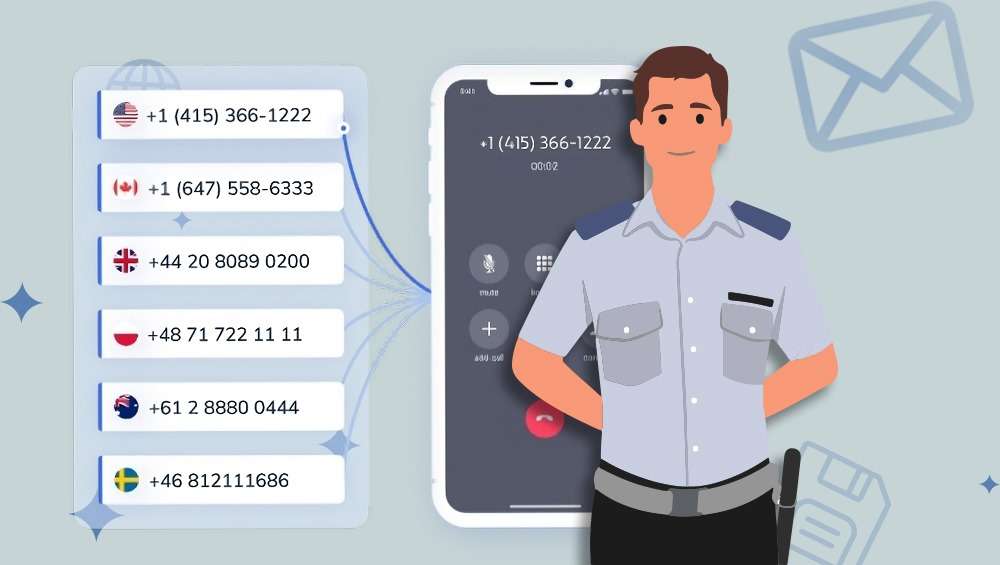In the digital age, where privacy concerns loom large and telemarketers relentlessly pursue our personal information, the use of temporary phone numbers has gained popularity. These disposable digits promise a shield against unwanted calls and spam, allowing users to maintain a degree of anonymity. However, the legality of employing temporary phone numbers has sparked debates and questions. In this comprehensive exploration, we will delve into the legal landscape surrounding the use of these ephemeral communication tools.
Understanding Temporary Phone Numbers
Temporary phone numbers are short-lived, virtual numbers that allow users to send and receive calls and texts without revealing their actual phone number. These numbers serve a variety of purposes, from safeguarding personal information to facilitating temporary communication for online transactions. While their utility is evident, the legal implications remain a subject of scrutiny.
The Legality Quandary
The legal status of temporary phone numbers varies across jurisdictions, making it essential to dissect the intricacies involved. One primary consideration is the intent behind using these disposable digits. If the purpose aligns with legal activities, such as protecting personal privacy or avoiding unsolicited communication, the use is generally deemed lawful.
Privacy and Anonymity
The right to privacy is a fundamental aspect of personal freedom, and many argue that using temporary phone numbers falls within the ambit of this right. Advocates contend that individuals should have the liberty to shield their primary contact information from entities that might misuse or compromise it. As a result, the use of disposable numbers for privacy reasons is often considered legal.
Moreover, temporary phone numbers can be a boon for those engaged in online dating or job hunting. By employing a disposable number, individuals can communicate without divulging their permanent contact details until they establish trust. This aligns with the principles of privacy protection, bolstering the argument for the legality of these ephemeral digits.
Anti-Spam Measures
Spam calls and messages have become a ubiquitous nuisance, prompting individuals to seek refuge in temporary phone numbers. Governments and regulatory bodies worldwide have recognized the menace of spam and have implemented stringent measures to curb it. In this context, using disposable numbers to avoid unsolicited communication is often viewed as a legal and justified practice.
However, the line between legitimate use and potential misuse can be thin. Some individuals may exploit temporary numbers for malicious activities, such as fraudulent schemes or harassment. This has led to increased scrutiny from law enforcement agencies and policymakers, who aim to strike a balance between privacy rights and public safety.
Legal Perspectives Around the Globe
To ascertain the legality of using temporary phone numbers, it is crucial to examine the legal stances adopted by different countries. The regulations governing these disposable digits can vary significantly, shaping the landscape for users.
United States
In the United States, the use of temporary phone numbers is generally legal, provided it is not employed for illegal activities. The Federal Communications Commission (FCC) regulates telecommunication services and enforces rules to protect consumers from unwanted communications. While there are no explicit laws against using temporary numbers, individuals must adhere to broader regulations governing telecommunications and privacy.
European Union
Within the European Union (EU), data protection laws, such as the General Data Protection Regulation (GDPR), play a pivotal role in shaping the legality of temporary phone numbers. The GDPR emphasizes the protection of personal data and gives individuals control over their information. Consequently, using disposable numbers for privacy reasons aligns with the principles enshrined in the GDPR.
However, individual member states may have specific regulations, so users should be cognizant of local laws governing telecommunications and privacy.
Asia
In various Asian countries, the legal status of temporary phone numbers can be diverse. Nations like Japan have embraced temporary numbers as a means to safeguard personal information, while others may impose restrictions to prevent misuse. China, for instance, tightly regulates virtual numbers to curb fraud and illegal activities.
It is imperative for users to familiarize themselves with the specific regulations of the country they reside in or operate within to ensure compliance with local laws.
Ethical Considerations
While the legal landscape provides a framework for understanding the permissibility of using temporary phone numbers, ethical considerations also come into play. Users must weigh the ethical implications of their actions, ensuring that the use of disposable digits aligns with principles of honesty and integrity.
Responsible Use
To maintain a balance between privacy and responsibility, users should employ temporary phone numbers responsibly. This involves refraining from using these numbers for fraudulent activities, harassment, or any actions that contravene the law. Responsible use not only aligns with ethical standards but also contributes to fostering a positive perception of disposable numbers in the wider community.
Transparency in Communication
Another ethical aspect involves transparency in communication. Individuals using temporary phone numbers should communicate openly about the use of these digits, especially in professional or personal relationships. This ensures that all parties involved are aware of the temporary nature of the communication, preventing misunderstandings.
Conclusion
In the ever-evolving landscape of digital communication, the legality of using temporary phone numbers remains a dynamic subject. While these disposable digits offer a layer of privacy and protection against spam, users must navigate the legal and ethical dimensions associated with their use.
As regulations continue to adapt to the challenges posed by evolving communication technologies, individuals should stay informed about the legal status of temporary phone numbers in their respective regions. Striking a balance between privacy rights and societal interests, users can harness the benefits of disposable digits while adhering to the legal frameworks that govern them.
